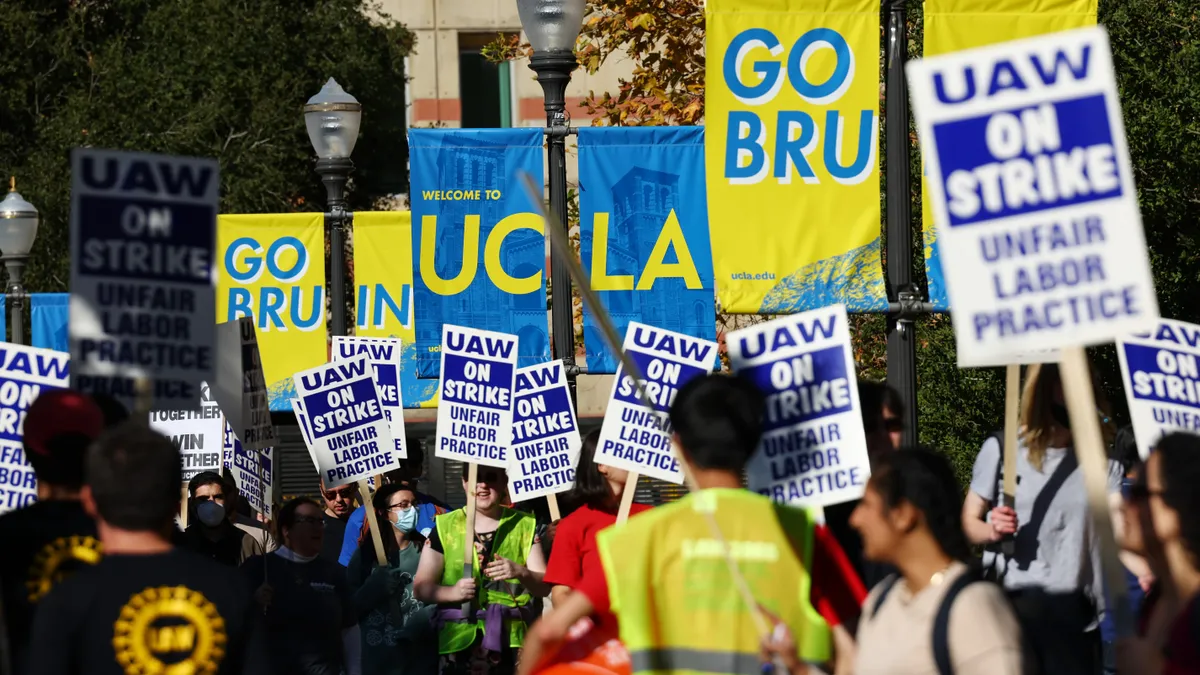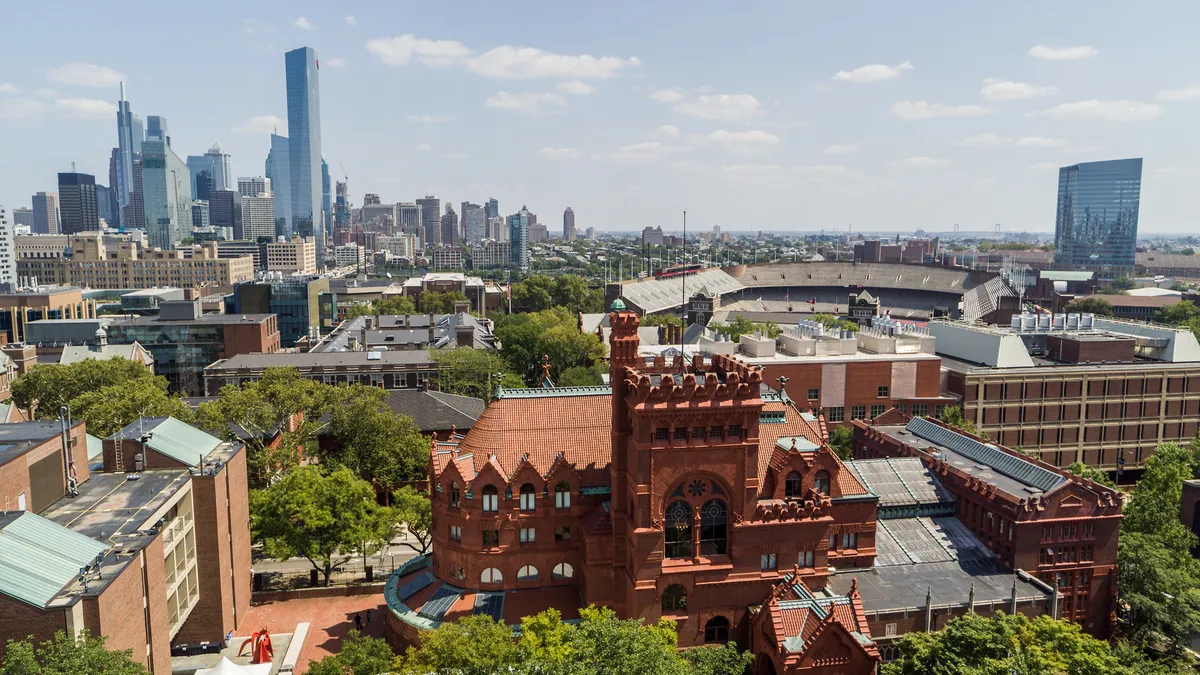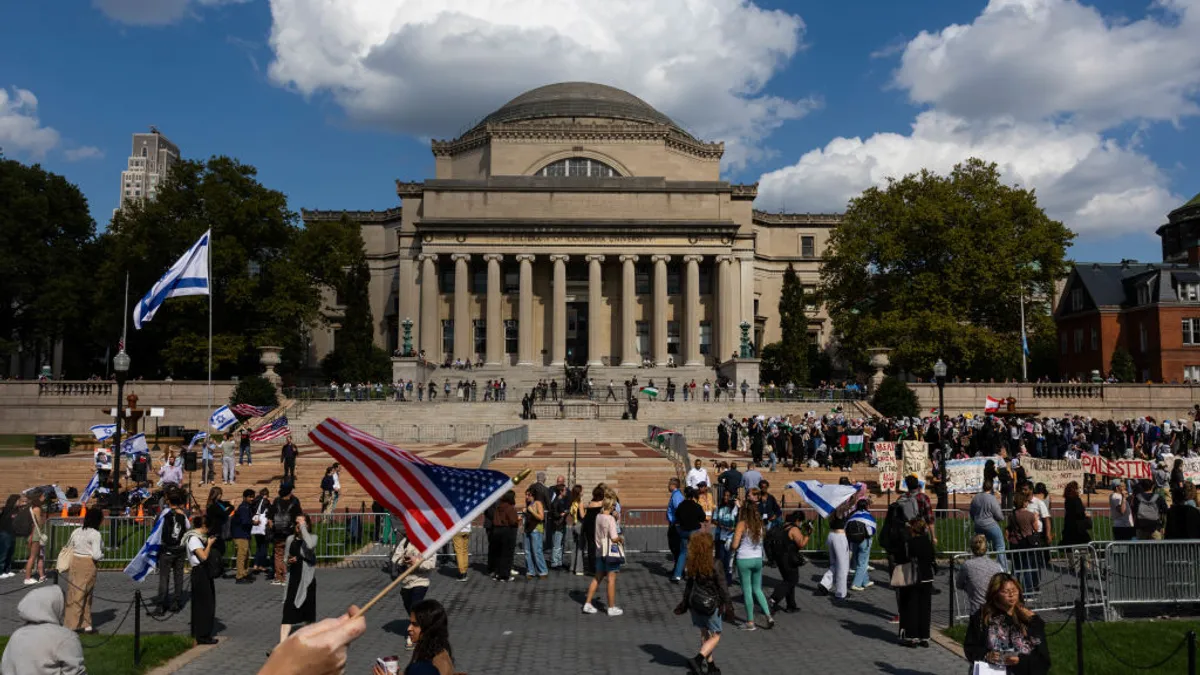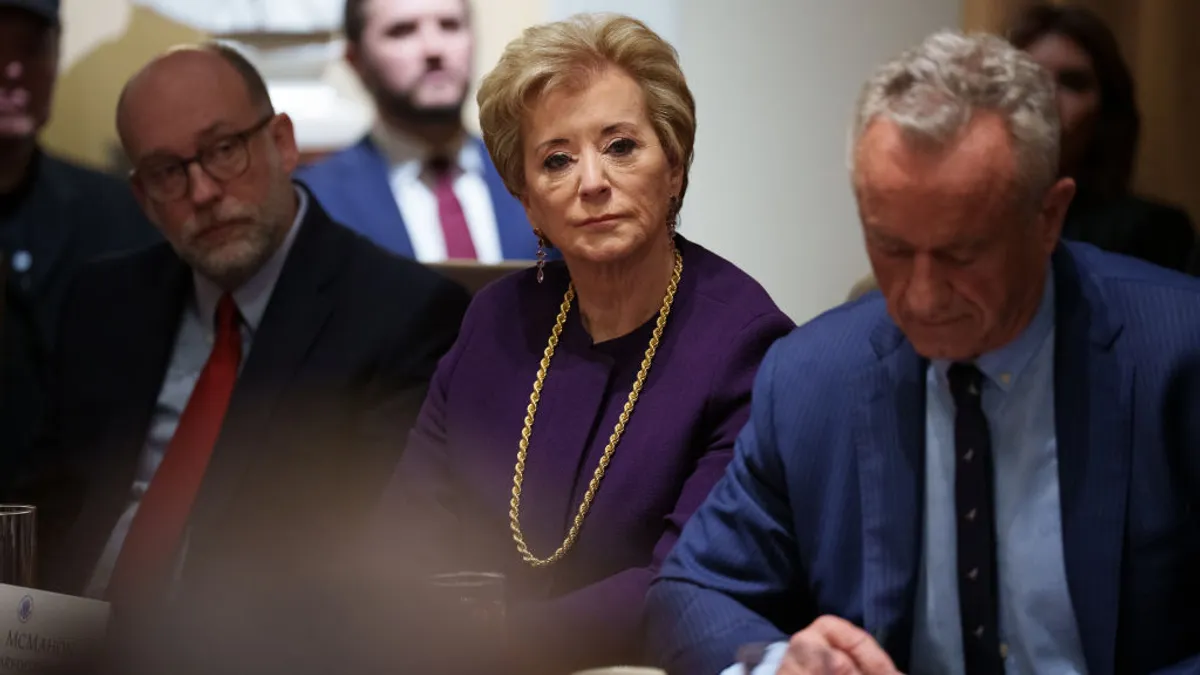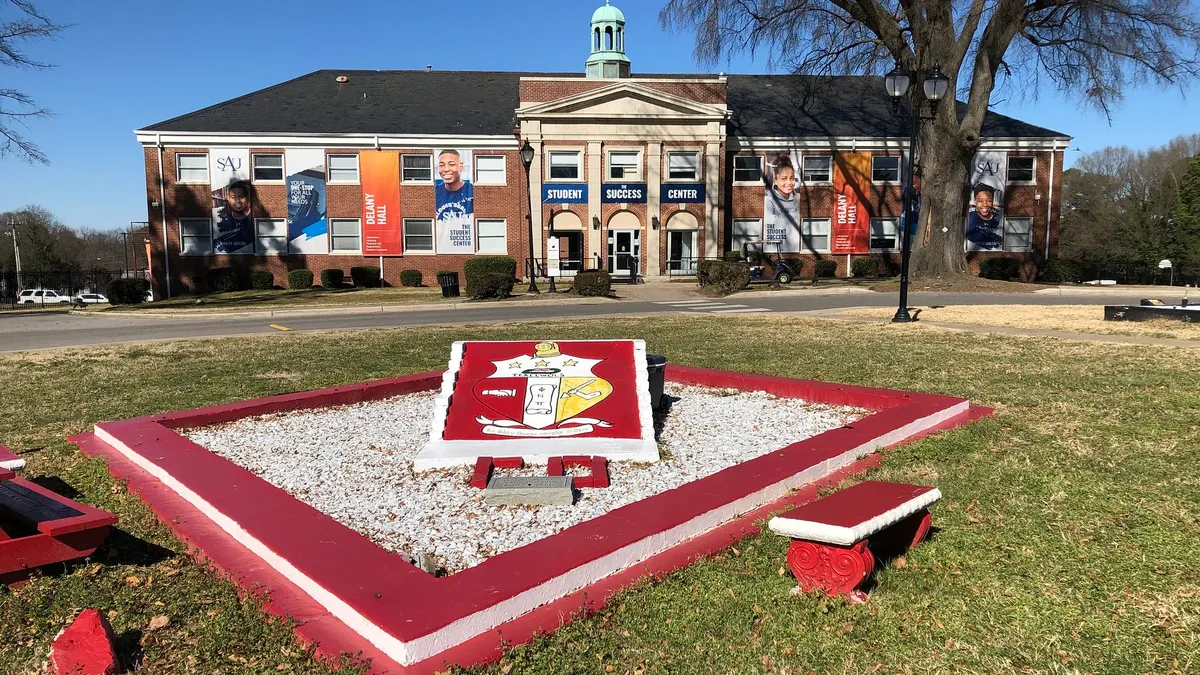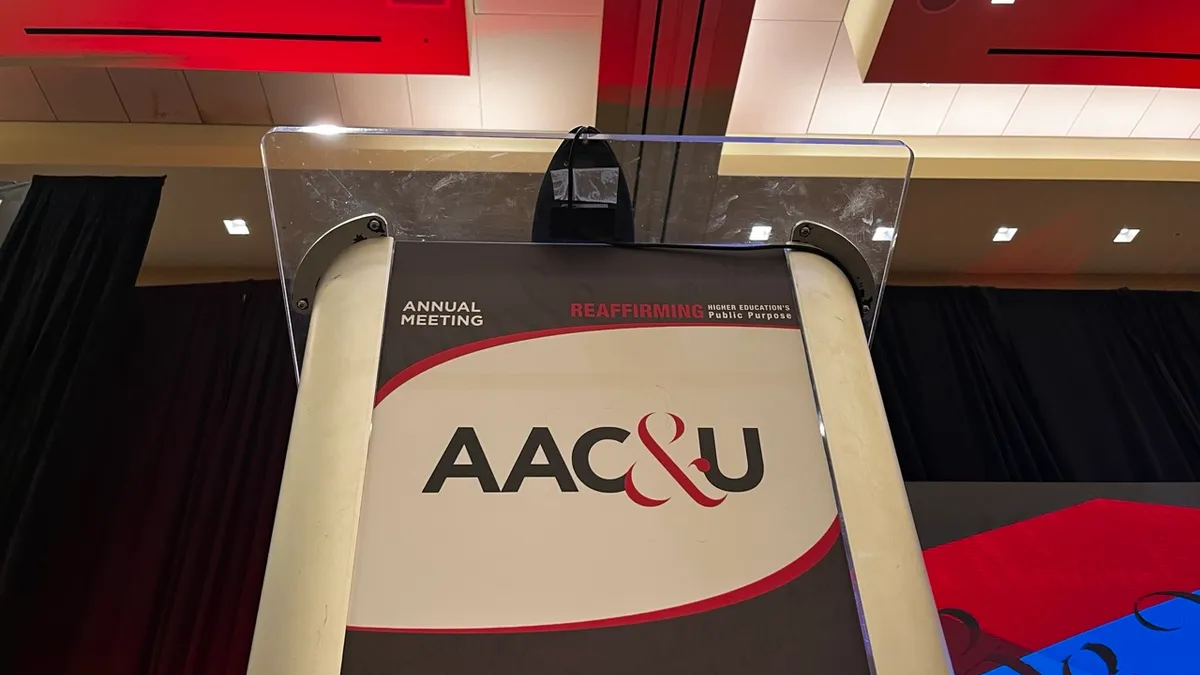At the beginning of December, as some 48,000 academic workers without contracts were on strike across the University of California system, union members and sympathetic academics organized a community day at the University of California, Riverside.
"Striking is not something we're doing for fun," said Mai Do, a Riverside unit bargaining team representative for United Auto Workers 2865, the union representing academic student employees like teaching assistants, graduate student instructors and tutors across all 10 UC campuses. "It’s been unfortunate that folks like myself had to be away from the classroom for several weeks now."
The system and unions would eventually announce several agreements that could bring the strike to an end. Postdoctoral scholars and academic researchers ratified new contracts in the first half of December. Shortly afterward, a union for student researchers and the union for academic student employees announced tentative agreements.
Voting on whether to approve the agreements for student researchers and academic student employees concludes Dec. 23. The strike was set to continue until contracts are ratified.
But as of Dec. 1, no new contracts had been approved. That day, union members organized demonstrations across the state, including at UC Berkeley’s California Hall and inside the Luskin Conference Center at the University of California, Los Angeles.
At UC Riverside, graduate students stood outside a lecture hall around a table strewn with books for sale. They discussed the work of the socialist feminist scholar Silvia Federici, known for advocating for wages for domestic labor in the 1970s.
"Some of the folks on our picket line have organized a book sale to try and help pay for supplies," said Do, a recording secretary for UAW 2865 as well as a Ph.D. student and teaching assistant in UC Riverside's political science department. Money could go toward banners for picketing and marching, for example.
History of the strike
Just reaching tentative agreements proved a fraught process filled with picketing and protest.
The largest strike in the country this year, which organized labor also called the largest strike in the history of U.S. higher education, involved three UAW-affiliated unions.
UAW 2865 represents teaching assistants, graduate student instructors, tutors and readers responsible for reading and grading assignments. UAW 5810 represents postdocs and academic researchers. Student Researchers United-UAW represents students in research positions. It only formed a union a year ago.
After negotiations came to loggerheads, the unions launched a statewide strike Nov. 14, alleging unfair labor practices related to bargaining. Sticking points in negotiations have included wages, housing, cost-of-living concerns and protections for workers with disabilities.
Over the following weeks, union members' protests included a sit-in at Mrak Hall on the UC Davis campus and occupying the lobby of a system office building, which led to 17 people being arrested. A month into the strike, they held a rally outside a Board of Regents meeting that included an appearance by one-time Rage Against the Machine guitarist Tom Morello.
Nevertheless, postdocs and academic researchers, who were about a quarter of the strikers, ratified their new contracts, the UC system reported Dec. 12. Terms included pay raises, paid family leave provisions and new mechanisms to address abusive workplace environments, according to the system.
For negotiations covering the remaining employees, the UAW and the UC system agreed to enter private mediation led by Sacramento Mayor Darrell Steinberg on Dec. 9. A week later, they announced the tentative agreements for academic student employees and graduate student researchers. They entailed expanded paid family leave, minimum salary scales for academic student employees and pay increases.
"I would like to thank Mayor Steinberg, and negotiators for both the University and the UAW, for coming together in a spirit of compromise to reach this tentative agreement," system President Michael Drake said in a statement at the time. "I would also like to thank our faculty, students, and staff, who have managed the burden of this strike with dedication and patience over the last month."
'I feel a little bit torn'
Still, the contracts didn't have everything workers wanted.
Some SRU-UAW and UAW 2865 bargaining team members, including Do, opposed the tentative agreements. They released a statement Dec. 16 saying "the UC’s mediated proposals fail to deliver on the major demands of the strike" and that the strike "has unfulfilled potential to extract a better offer from the UC."
Julia Métraux, a freelancer and master’s student in Berkeley’s journalism program, said on Twitter that "as a disabled graduate student … I will be voting NO on the contract" because of concerns about access and public health.
"This is not okay during a pandemic that is also a mass-disabling event," Métraux tweeted.
According to a UAW summary, the agreements up for a vote contain wage increases by 2024 that fall between 55% and 80% for academic employees and 25% to 80% for graduate student researchers. They also spell out 27% increases in child care subsidies and some protections for workers who have to engage with the immigration system.
Tyler Cohen, a teaching assistant in the sociology department at UC Riverside, said he felt "oversold" on the proposal. He was gathering information while weighing a "no" vote and remaining open to the possibility of staying on strike.
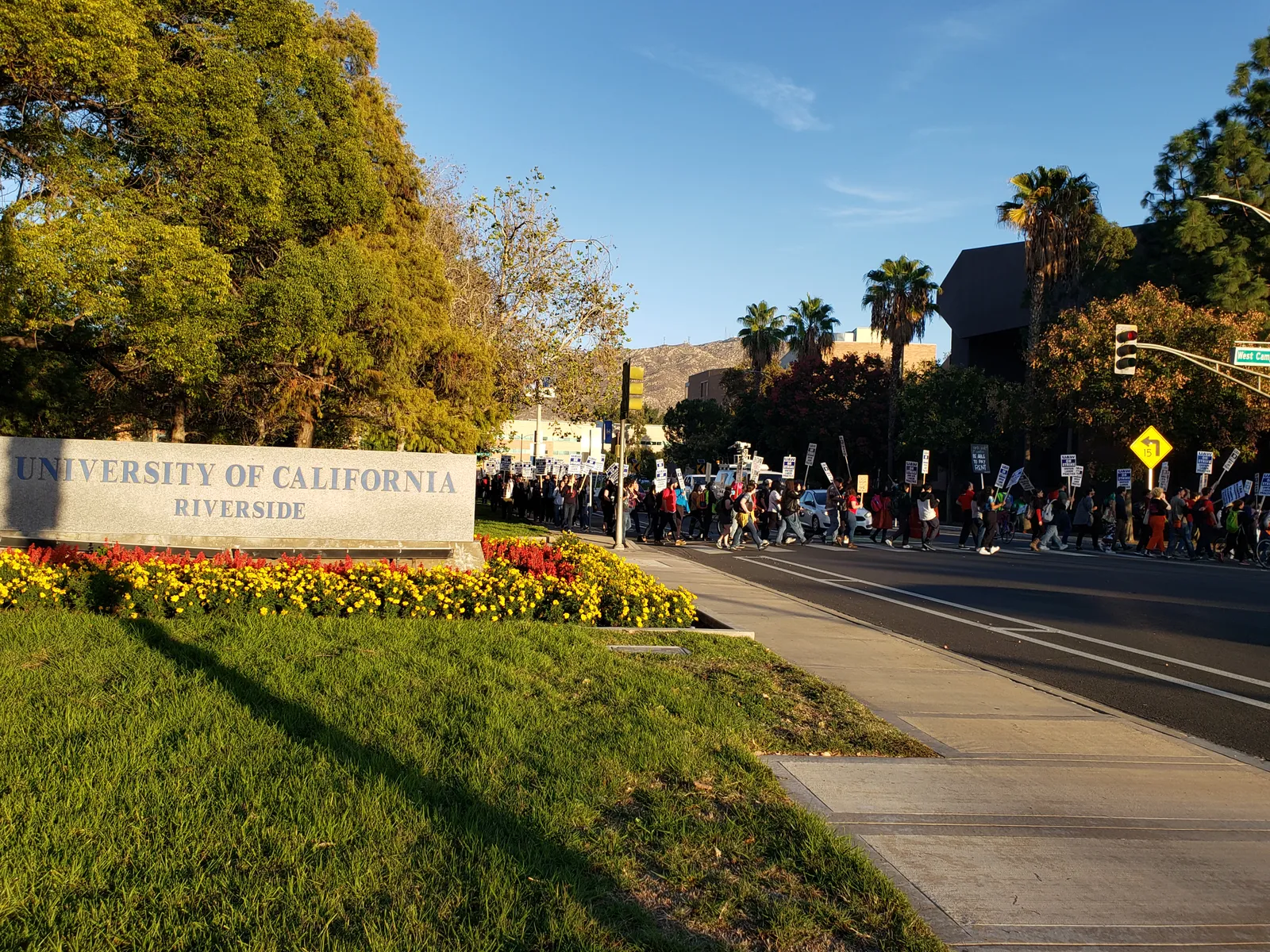
“I feel a little bit torn because I absolutely cannot lose my job,” Cohen said. "It's just not a time in my life where I could just be between jobs. I'm not in a position to do an economic strike."
Even though academic researchers approved the contract that covers them, they expressed some reservations.
The contract does not provide child care reimbursements, which take up more than half of some workers' income, said Alejandra Domenzain, an academic researcher working as coordinator of public programs in the labor occupational health programs at UC Berkeley.
It overlooks protections for international employees, omits improvements in special needs access, fails to provide housing support and lacks transportation subsidies, Domenzain said.
“Also, many people were upset that it locked us in for five years rather than giving us a chance to renegotiate sooner and also be in line with other bargaining units being offered shorter contracts," Domenzain said.
But Domenzain acknowledged "modest" wage increases in the new contract.
'A vision for a better future, a more just society'
Several union members who took part said they had positive experiences organizing or on the picket lines.
Domenzain saw the strike as bringing together often-isolated academic researchers.
“That was, I think, really powerful that we kind of met each other and started to share our experiences and our hopes," she said.
Domenzain normally works from home. But during the strike, she regularly commuted an hour to campus for picketing. She brought her children.
“They got to see what it looks like when people come together with a vision for a better future, a more just society," she said. They saw their mom, a daughter of Mexican immigrants, hold a microphone and lead the crowd in chanting ‘Si se puede.’ They got to see history being made.”
"Si se puede" translates to "yes you can."
"We kind of met each other and started to share our experiences and our hopes."

Alejandra Domenzain
An academic researcher working as coordinator of public programs in the labor occupational health programs at UC Berkeley
Joyce Chan is a postdoc in the neuroscience department at UC San Diego and union recording secretary there. Postdocs hold doctoral degrees and are no longer students. Those represented by UAW 5810 have duties such as conducting research, publishing papers and writing grants under a professor.
Chan also pointed to a sense of solidarity during the strike.
“I feel so much more connected with my fellow postdocs and academic workers, and that comes with dedicating so much time organizing together and learning from each other,” Chan said in an email two days after union members voted to ratify the new contract covering postdocs.
Cohen, the teaching assistant at UC Riverside, said it felt good to be present on the picket line. When he spent some time with family, away from campus, during the fall break, it made him "feel a bit disconnected," he said.
From his perspective, the strike can help affected academics and professors who had contracts and didn't take part in the labor action.
"Even though faculty get paid a lot more, there's nothing magical and special about them that makes them enlightened beings," Cohen said. "We can show them how social change can happen in this day and age.”
Low salaries versus high costs of living
Cohen also said he wants to make enough not to have to borrow money to pay rent. According to the Census Bureau, California ranks second only to Florida in a list of states with the most counties where the median renter spends more than 30% of their income on housing — such renters are considered cost burdened by the federal government.
“Our educational and research missions cannot be well served without the help of teaching assistants and research assistants.”

Christopher Chase-Dunn
Retired sociology professor and co-director of the Institute for Research on World-Systems at UC Riverside
The cost of living and housing contributed to tensions at the bargaining table. Some felt the eventual contract fell short at making salaries match housing costs. Mark Woodall, a UC Merced physics Ph.D. candidate who chairs his UAW 2865 campus unit, criticized the tentative agreement covering his union because it didn't meet a demand to link wages to housing costs, according to the Los Angeles Times.
"The idea that these are being sold as spectacular wins is just ludicrous," Woodall told the publication.
Salaries for graduate student researchers would start at $34,564.50 by October 2024 under the tentative agreement, the Times reported. For academic student employees, they would be $34,000, for most but $36,500 for those at high-cost campuses in Berkeley, San Francisco and Los Angeles.
Christopher Chase-Dunn is a retired sociology professor and co-director of the Institute for Research on World-Systems at UC Riverside.
He'd been hoping the system would pay academic workers enough to end the strike before the start of the winter quarter on Jan. 4.
“Our educational and research missions cannot be well served without the help of teaching assistants and research assistants,” said Chase-Dunn, who remains a member of the Riverside Faculty Association.
Faculty divided by the picket line?
Chase-Dunn supported a position taken by the Council of UC Faculty Associations — faculty have the right to withhold their own labor in solidarity with the striking union members.
Citing analysis from UC labor law professors, the Council of UC Faculty Associations says state law protects the right of faculty who are members of academic governance groups to "respect the picket line" and withhold their labor if they choose.
But the system also has lecturers off the tenure line who are represented by a union with an active collective bargaining agreement with the university. That agreement includes a no-strike clause.
University Council-American Federation of Teachers, the union representing lecturers, advised its members not to do labor to compensate for employees who were absent because they were on strike. That is a workload protection right under their collective bargaining agreement, said Stan Porter, lecturer and co-chair of the UC-AFT chapter on the Merced campus, in an email.
Porter said some lecturers worry students might consider them responsible for all instructional work and penalize professors off the tenure track on course evaluations if they don't take on tasks like grading that those on strike would otherwise do.
“These evaluations are used in our Excellence and Merit Reviews, and could impact someone’s continued employment at the UC or negatively impact their salary increase,” Porter said.
The president of the Council of UC Faculty Associations, Constance Penley, said the group has tried to clearly communicate the limits lecturers face.
“We want to make sure that they are working together and that everybody understands that the reason they're there is because, by contract, they cannot join the strike,” said Penley, a professor of film and media studies at UC Santa Barbara.
The Council of UC Faculty Associations and UC-AFT also worked together to have representatives on hand at campus town halls, rallies and strike-related events.
Are students harmed?
This year's strike was large, but it's not the first clash between labor and administrators in recent years.
A 2019 teaching assistant wildcat strike at UC Santa Cruz led to at least 20% of course grades from the fall term not being submitted by a mid-December deadline, the Santa Cruz Sentinel reported. The university also terminated teaching assistants, though an agreement was reached to later reinstate dozens of them.
Reports that faculty members could withhold grades in the 2022 strike prompted fears that undergraduates would be harmed, such as if they need a certain GPA to maintain access to financial aid. According to Penley, the Council of UC Faculty Associations president, no documented case exists of a single UC student suffering when grades have been withheld in past labor actions.
The UC system reportedly threatened to withhold compensation from senate faculty members who chose not to issue grades.
Whether or not grades show up, UC administrators acknowledge striking academic workers are an important part of students' education.
“Graduate Student Instructors are an important part of Berkeley’s instructional system, and we recognize that undergraduate students are disadvantaged by the lack of discussion sections and office hours with their graduate instructors,” said Janet Gilmore, senior director of strategic communications at UC Berkeley.
Cohen, the teaching assistant at UC Riverside, said the power of the strike stems in part from withholding research and grades. He said the university prioritizes assessment over meaningful instruction, and the strike in part represents a refusal to reduce grad student workers to "grading machines."
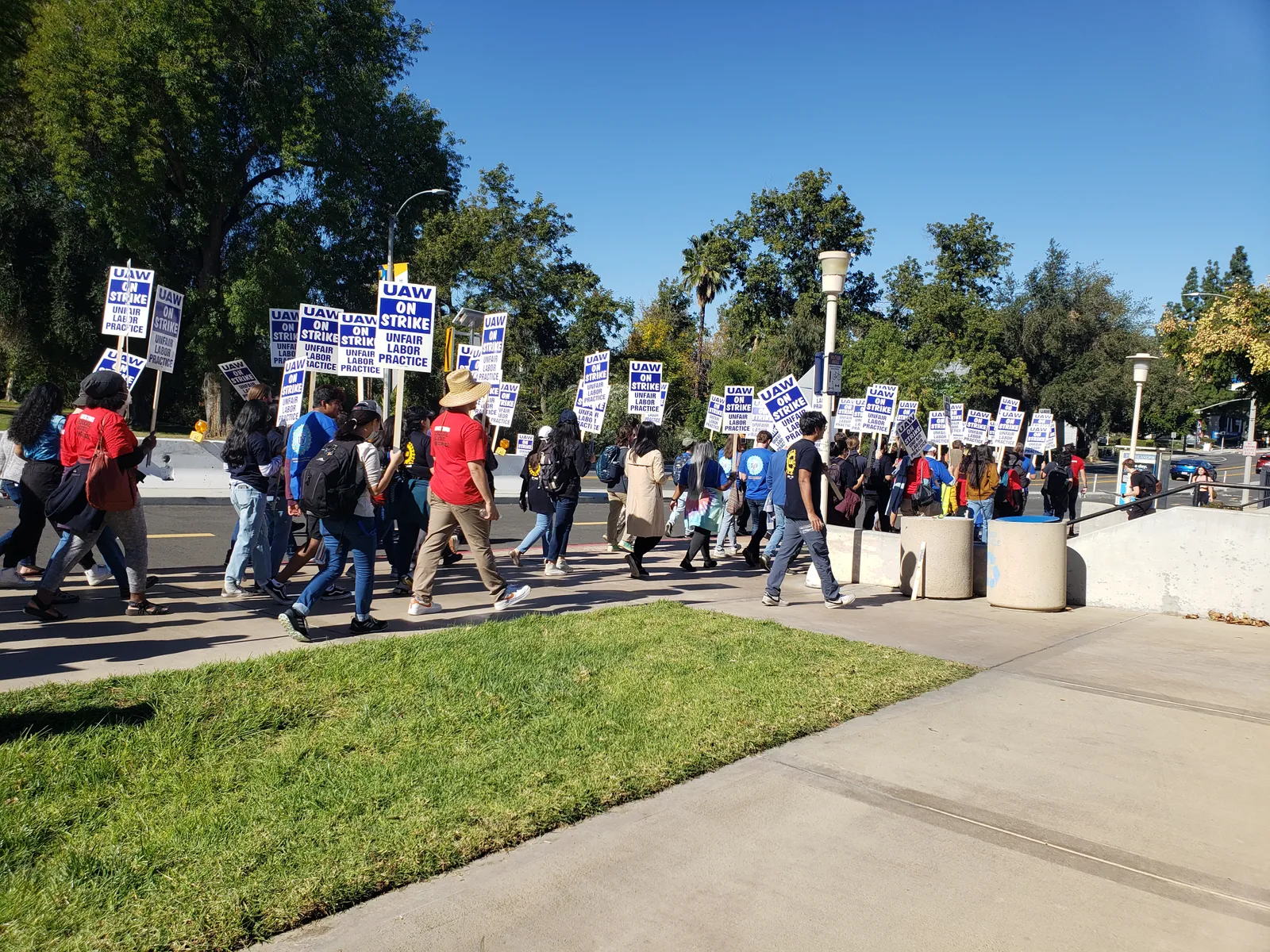
Many intimately involved in the strike see a larger struggle unfolding.
It's a struggle "for a UC that works for everyone," undergraduates included, said Do, the UC Riverside teaching assistant and UAW 2865 recording secretary.
"Students deserve reasonable class sizes," Do said. "They deserve to have a world-class education delivered by instructors who aren't preoccupied with whether or not they're going to be able to pay rent or afford gas."


